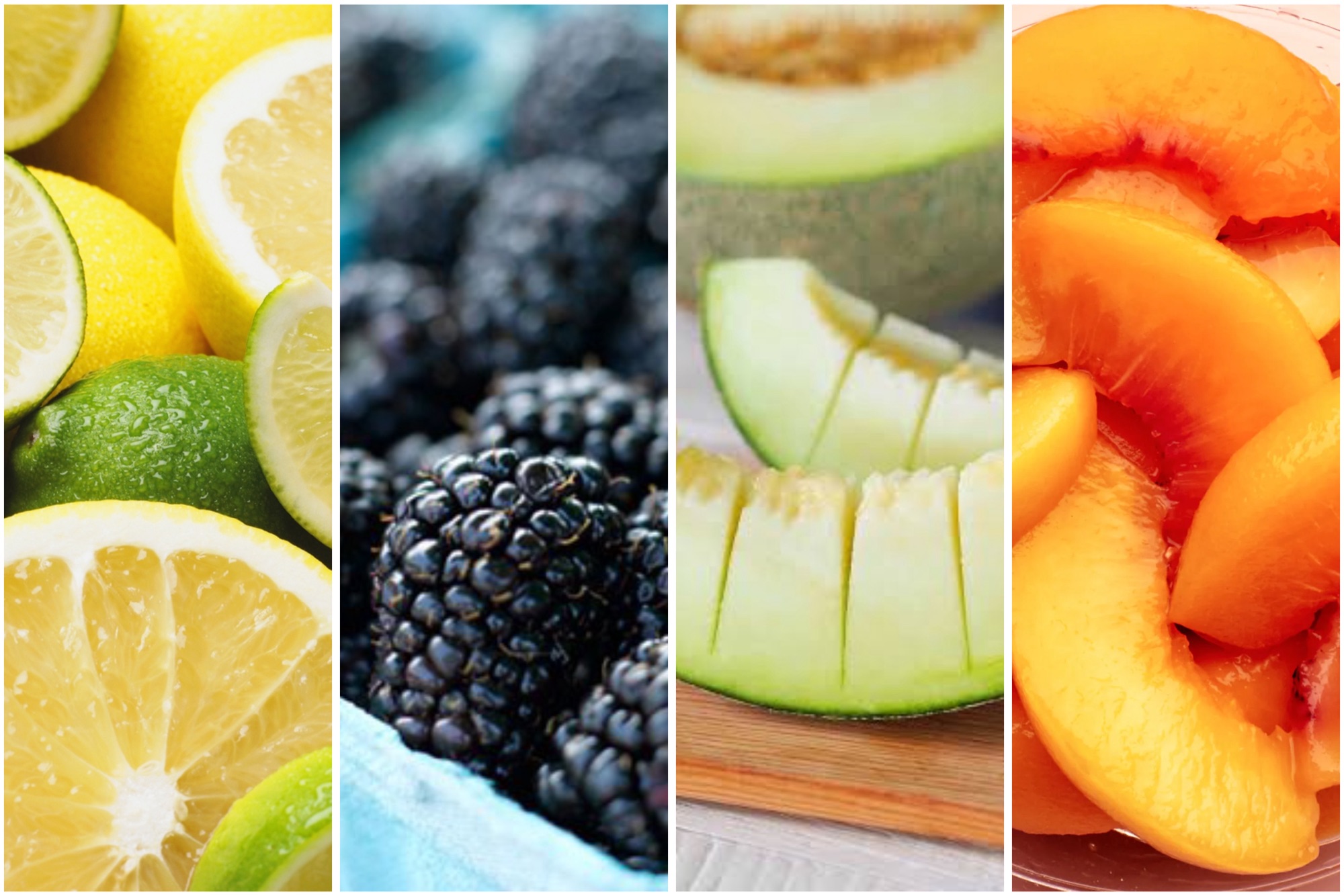It’s widely recognized that fruits offer health benefits, but not all fruits have the same sugar levels. Some fruits provide significant nutritional advantages with lower sugar content. According to dietitian Dr. Sammie Gill, while fruits contain sugar, they also deliver essential nutrients absent in processed sweets. Fruits are rich in antioxidants and polyphenols, which may help prevent chronic diseases such as heart disease and Type 2 diabetes. They also offer various types of fiber, beneficial for heart health and gut microbiome support.
Dr. Gill elaborates that fruits lower in sugar have a lower glycemic index, meaning they have a minimal impact on blood sugar levels compared to sweeter fruits or high-sugar foods. Their high water and fiber content can aid in weight management and are particularly suitable for those following a low-carb diet, as noted by nutritionist and author Rob Hobson.
For those interested in fruits with lower sugar content, it’s important to note that the World Health Organization recommends consuming at least 400g of fruits and vegetables daily (equivalent to five 80g portions), while the recommended daily sugar limit for adults is 30g.
10. Kiwi
7.8g of sugar per 80g serving
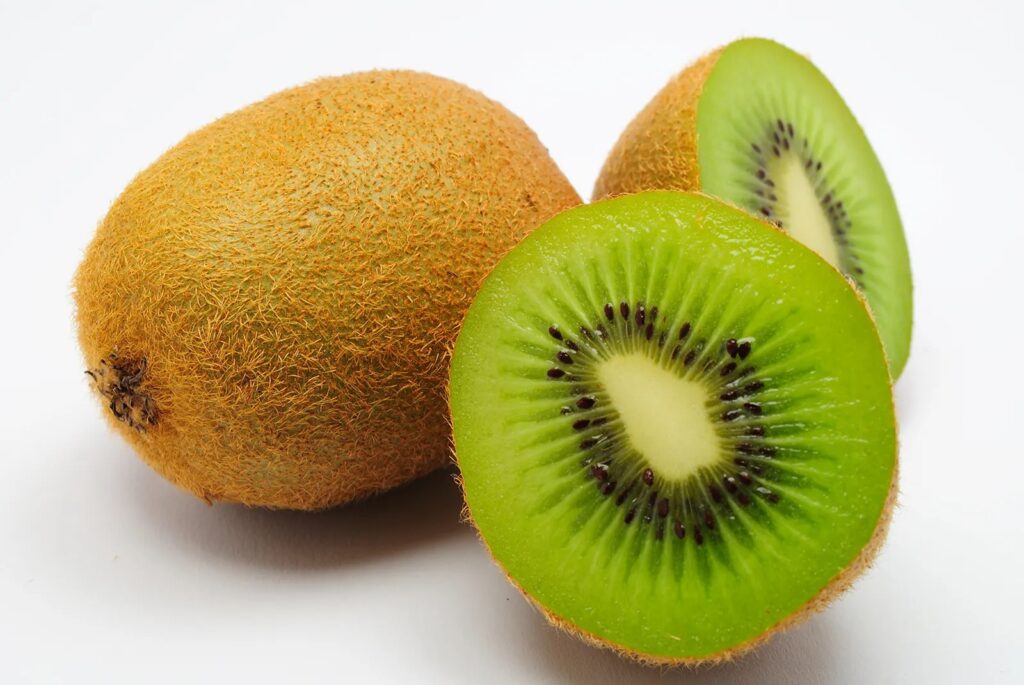
Kiwis are abundant in vitamin C and contain melatonin, the sleep hormone that helps regulate circadian rhythms, potentially improving sleep, according to Hobson. A study involving elite athletes found that consuming two kiwis two hours before bed positively affected sleep.
Kiwis are also known for effectively treating constipation, which affects 10 to 15 percent of the global population. Dr. Gill explains that kiwis enhance gut motility by increasing water retention in the small intestine and reducing transit time, improving stool consistency and frequency, and alleviating other gut symptoms such as pain and discomfort.
9. Oranges
22 per cent of your daily sugar allowance
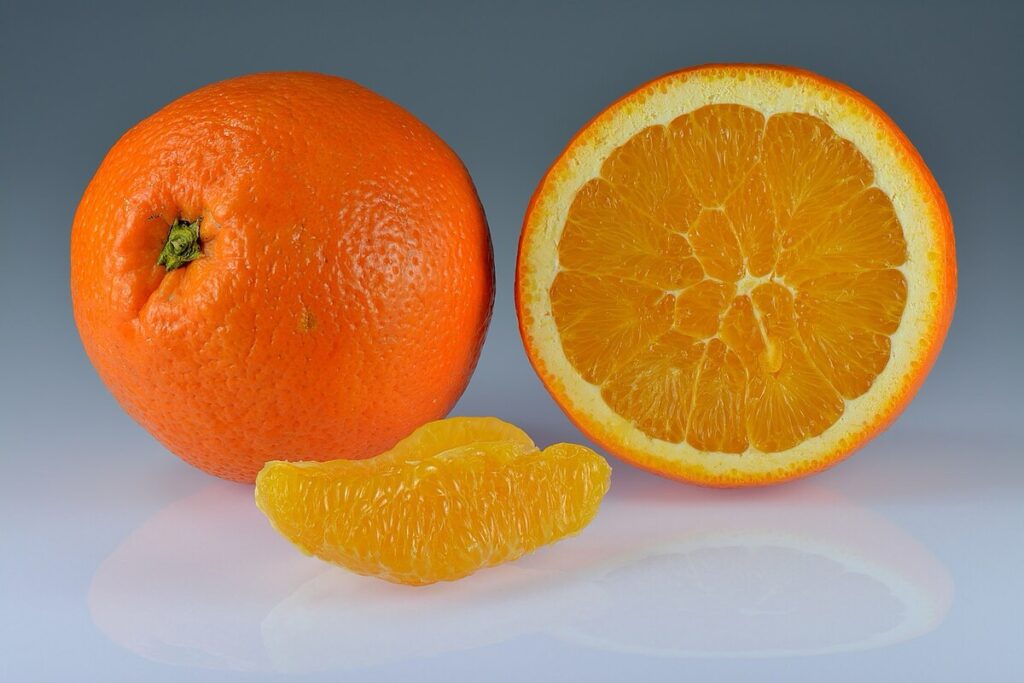
Oranges are well-known for their high vitamin C content, which strengthens the immune system and offers antioxidant benefits. It would take 15 apples to equal the vitamin C found in a single orange. Dr. Gill notes that research suggests oranges may have anti-inflammatory properties beneficial for managing chronic diseases.
Furthermore, drinking orange juice with a meal can improve the body’s absorption of iron from both animal and plant-based foods.
8. Peaches
20 per cent of your daily sugar allowance
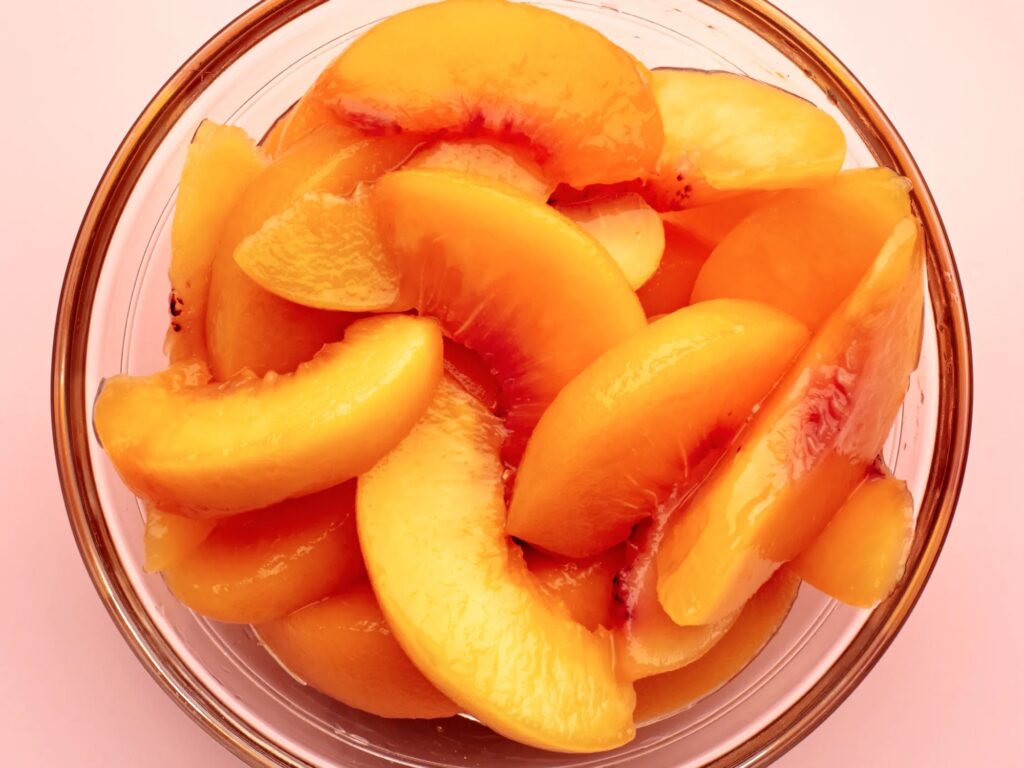
Hobson explains that the orange color of peaches is due to carotenoids, which act as antioxidants in the body. These compounds, including beta carotene, are converted into vitamin A, a crucial element for the immune system. Vitamin A is essential for maintaining the mucous membranes in the eyes and gut, which serve as barriers against bacteria and other harmful agents.
Dr. Gill adds that recent studies in lab and animal models suggest peaches may also provide protection for the skin against UV radiation.
7. Honeydew melon
18 per cent of your daily sugar allowance
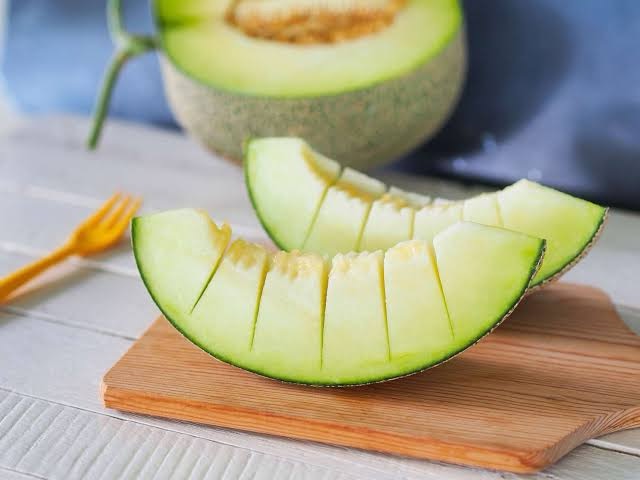
Dr. Gill underscores that honeydew melon, containing 90% water, is highly effective for maintaining hydration.
Adequate hydration is essential for optimal gut function and digestive health, facilitating smooth food passage through the digestive system, preventing constipation, and aiding in food breakdown for nutrient absorption.
Honeydew melon also provides potassium, which helps regulate blood pressure, along with vitamin K, folate, and magnesium, all crucial for maintaining bone health.
6. Strawberries
15 per cent of your daily sugar allowance
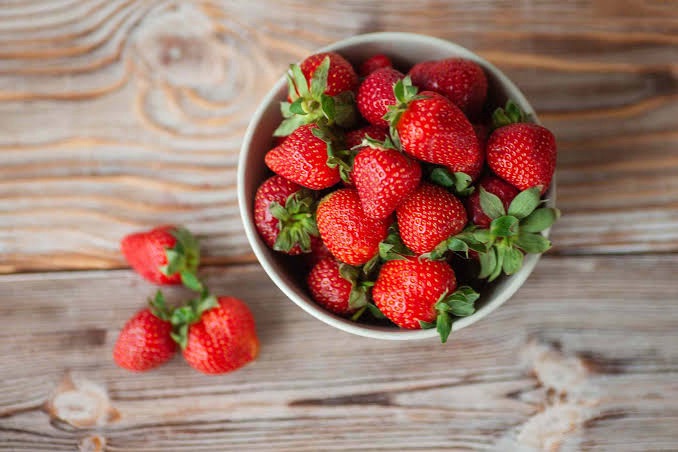
Strawberries are more than just a summer treat. Studies indicate that consuming 2.5 grams of freeze-dried strawberries daily can improve cardiometabolic health, including insulin levels and blood lipid profiles, especially in overweight individuals with high LDL cholesterol. Dr. Gill suggests that strawberries may also benefit those with Type 2 diabetes, although more research is needed. Research has shown that anthocyanins found in strawberries and other red/purple fruits may lower blood pressure and reduce the risk of heart attacks.
Moreover, the high vitamin C content in strawberries is essential for collagen production, crucial for skin structure and joint cartilage health, as highlighted by Hobson.
5. Grapefruit
14 per cent of your daily sugar allowance
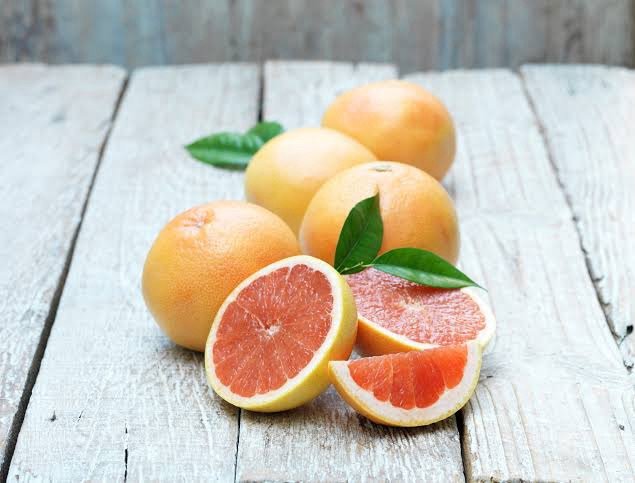
Grapefruits are rich in vitamin C, providing half of the daily recommended amount in just half a medium fruit, crucial for supporting immune health. They also contain vitamin A (beta carotene), which is important for maintaining eye health. Hobson highlights that red grapefruits contain lycopene, an antioxidant known for its benefits to men’s prostate health and its association with a reduced risk of stroke.
Despite being low in calories, grapefruits do not possess inherent properties that promote weight loss, contrary to popular belief. However, they can interfere with the metabolism of certain medications used for managing blood pressure, allergies, and cholesterol, as they inhibit a specific enzyme. Therefore, it’s essential to review the patient information leaflet for potential interactions before consuming grapefruit alongside medications.
4. Blackberries
13 per cent of your daily sugar allowance
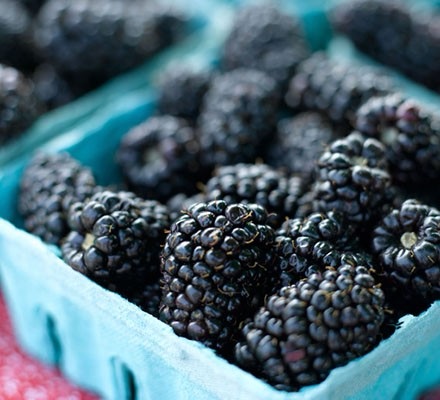
Hobson notes that blackberries have been extensively studied for their high antioxidant content, which can protect against cellular damage and potentially prevent conditions like heart disease and cancer. The deep purple color of blackberries comes from anthocyanins, which are linked to a reduced risk of chronic diseases, including heart and neurodegenerative disorders.
Moreover, blackberries are known to help lower cholesterol, slow the aging process, relieve pain, and improve blood circulation.
3. Raspberries
12 per cent of your daily sugar allowance

These vibrant red berries are packed with vitamin C, essential for immune function, wound healing, and maintaining healthy skin and blood vessels. They also contain antioxidants like quercetin and ellagic acid, the latter of which may help prevent or slow the progression of chronic diseases. Additionally, anthocyanins, the pigments in red and purple fruits, offer numerous health benefits, including antidiabetic, anticancer, anti-inflammatory, antimicrobial, and anti-obesity effects, as well as heart disease prevention.
Research suggests that these berries may reduce the risk of metabolism-related chronic diseases such as cardiovascular disease, Type 2 diabetes, and Alzheimer’s. Furthermore, raspberries are one of the best sources of dietary fiber among edible plant foods.
2. Lemon and limes
8 per cent of your daily sugar allowance
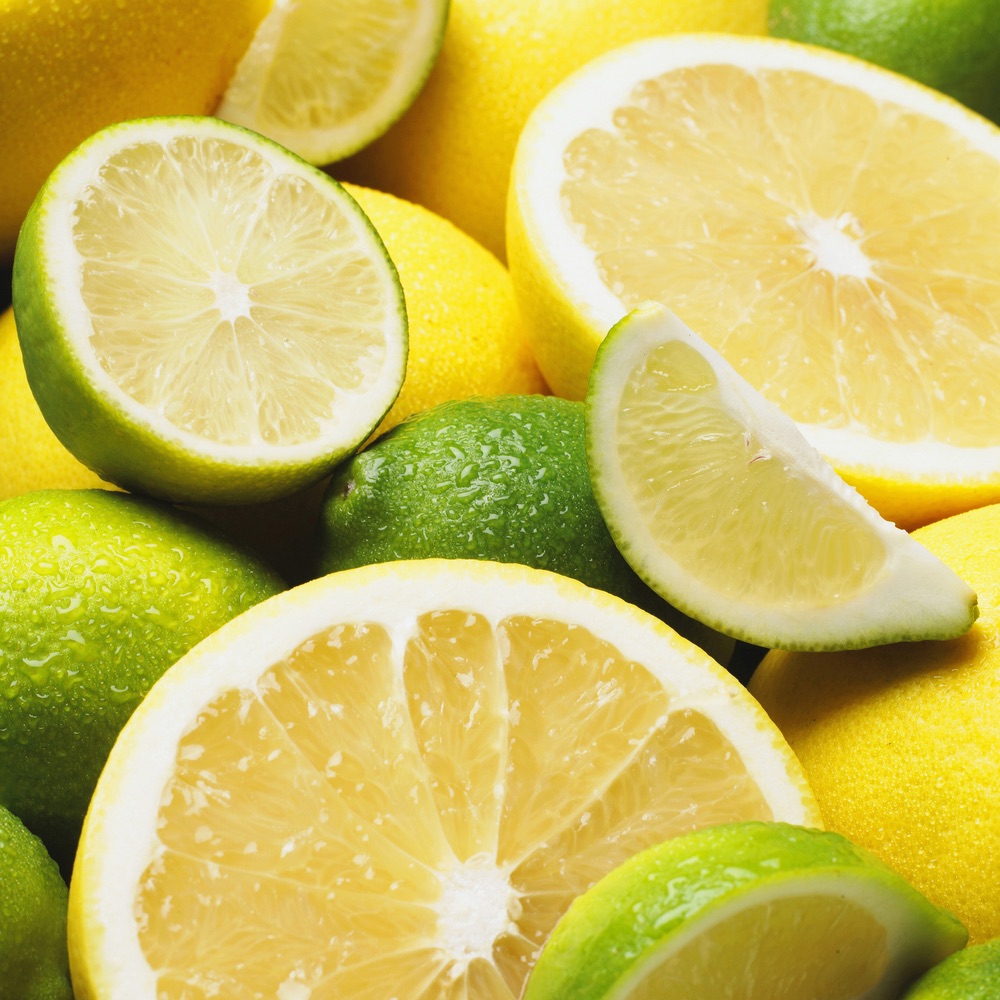
Hobson highlights that lemons and limes are rich in vitamin C, which helps absorb iron from plant-based foods like green vegetables and legumes, and are also great as marinades. Lemons, specifically, contain pectin, a soluble fiber that can reduce “bad” LDL cholesterol levels.
Dr. Gill adds that these citrus fruits contribute to bone strength due to their calcium content and help regulate blood pressure with their potassium levels. The peel of citrus fruits contains polymethoxylated flavones (PMF), a type of flavonoid that may promote brain health. These compounds can add a zesty flavor to savory dishes, be infused into water, or incorporated into sweet desserts for a tangy touch.
1. Avocados
1.3 per cent of your daily sugar allowance
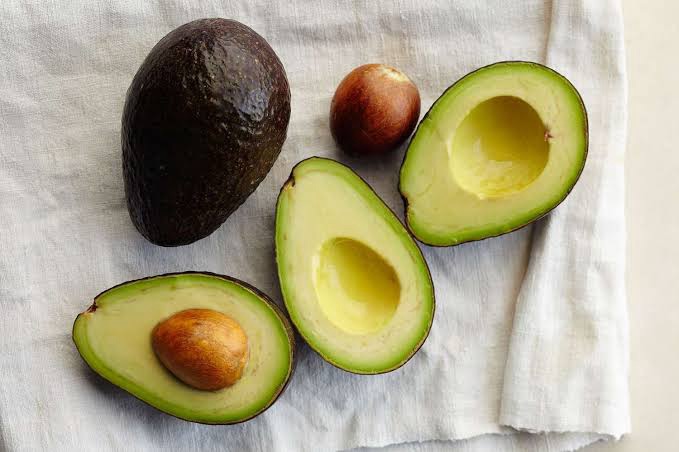
Hobson points out that avocados are rich in monounsaturated fats, known for their anti-inflammatory properties and ability to increase levels of beneficial HDL cholesterol. These fats also aid in the absorption of important nutrients such as vitamins A, D, and E, particularly effective when paired with oily fish or included in salads with leafy greens to maximize vitamin E absorption.
Furthermore, avocados contain significant amounts of lutein and zeaxanthin, nutrients linked to a reduced risk of age-related macular degeneration. They are also a good source of vitamin K, essential for maintaining bone health. Additionally, avocados act as a prebiotic due to their fiber content, which supports a healthy gut microbiome. Studies suggest that regular avocado consumption correlates with a more diverse population of gut microbes compared to those who consume them less frequently.
